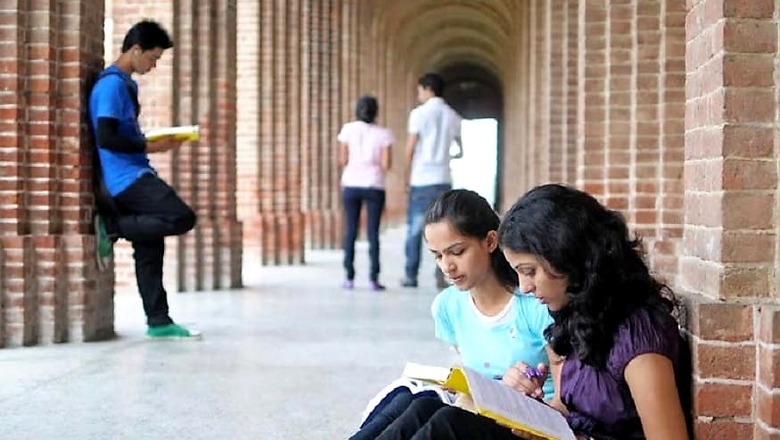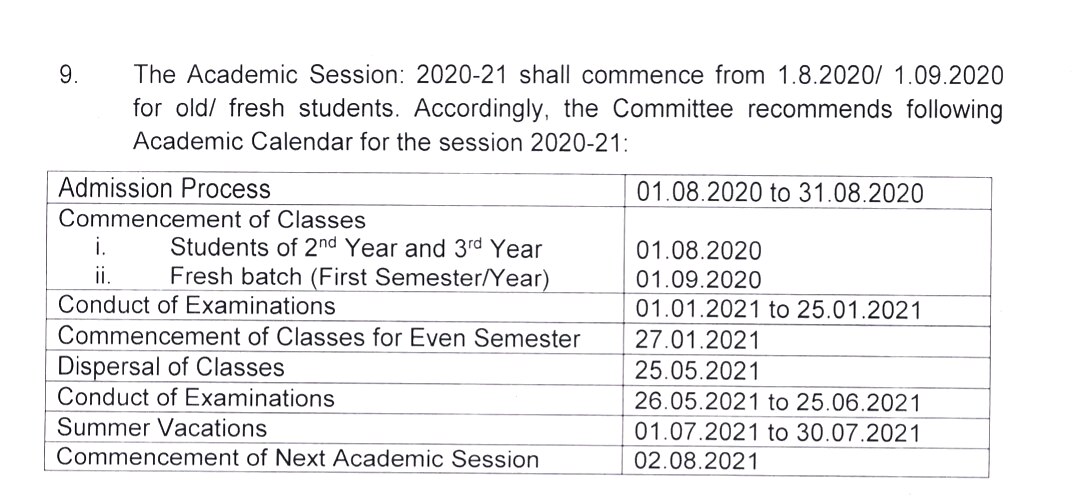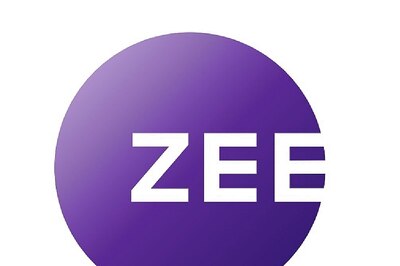
views
New Delhi: With the country in the second phase of lockdown with chances of a further extension to curb the spread of coronavirus, the University Grants Commission’s (UGC) Committee on Examinations and Academic Calendar for the Universities has recommended the admission process be started from August 1 to 31.
In its recommendation, the committee said, “The Academic Session: 2020-21 shall commence from 1.8.2020-1 1.09.2020 for old/fresh students. Accordingly, the committee recommends following Academic Calendar for the session 2020-21”.
Further, classes for second and third year students will begin from August 1, while the fresh batch for first semester will join classes from September 1. Examinations will be conducted from January 1, 2021, till January 25. Commencement of classes for even semester will begin from January 27 and dispersal will be on May 25.

The examinations will be conducted from May 26, 2021, with summer vacations from July 1 to July 30. Commencement of the next academic session will be from September 2, 2021.
The UGC constituted the committee on April 6 to deliberate and make recommendations regarding issues related to examinations and the academic calendar. The panel was headed by Professor RC Kuhad, former UGC member and VC Central University of Haryana.
The report further said a “common admission test may be conducted at national/ state level for admissions to undergraduate and post-graduate courses and research programmes in the universities and colleges.”
“The universities shall make admissions to the UG and PG programmes for the session 2020-21 latest by 31.08.2020.”
If necessary, “provisional admissions may be made and the last date of submission of relevant documents of qualifying examination will be 30.09.2020,” said the report.
The recommendations that are “advisory in nature” were made keeping in view the present scenario and the fact that educational institutions will required to follow social distancing for some more time even after the lockdown is lifted.
“The committee is of the view that each university should be at the liberty to chart out a contingent plan of action if the situation demands to deal with any sort of exigency,” the report added.
The expert committee has also suggested that “all universities follow a six-day week pattern to compensate the loss for the remaining session of 2019 -2020 and the new session 2020-2021.”
Regarding the requirement of minimum percentage of attendance for students/research scholars, the period of lockdown may be treated as “deemed to be attended” by all of them.
In view of the prevailing circumstances, the universities have been recommended to adopt appropriate strategies to facilitate the UG/ PG students pursuing projects/ dissertations.
“These students may be assigned review-based/secondary data based projects or software-driven projects, instead of laboratory-based experiments or field/ survey-based assignments.”
The committee said, “The universities may conduct practical examinations and Viva- Voce through Skype or other meeting apps, and in case of intermediate semesters, the practical examinations may be conducted during the ensuing semesters.”
Education in Times of Social Distancing
“In view of the importance of social distancing, universities may take necessary steps to ensure that students are given exposure to laboratory assignments/ practical experiments through virtual laboratories, sharing of the recorded visuals of laboratory work and digital resources available for the purpose,” the committee said.
The link provided by Ministry of Human Resource Development for virtual laboratories to facilitate the students of science/ engineering/ technology streams may be used for the purpose.
“In order to overcome such challenges in future, the faculty should be adequately trained for the use of ICT and online teaching tools, so that they complete about 25% of the syllabus through online and 75% syllabus through face-to-face teaching.”
It said that every institute should develop virtual classroom and video-conferencing facilities and all teaching staff should be trained with the use of the technology. Also, universities should prepare e-content e-lab experiments and upload the same on their websites.
“The universities should strengthen the mechanism of mentor-mentee counselling through a dedicated portal on university website to impart timely guidance and counselling to the students. Besides, the faculty advisors and supervisors assigned to each student should maintain regular communication with the students.”
The varsities have been advised to develop a fool-proof plan before the resumption of session, strictly following the norms of "social distancing" and other required precautions, to avoid any eventuality arising due to COVID-19.
“The universities may devise a proforma to record travel/ stay history of the staff and students for the period when they remained away from the university due to lockdown so that necessary precautions may be taken in specific cases, if required,” said the report, adding the universities shall strictly comply with all precautions and preventive measures to curb the spread of the coronavirus.




















Comments
0 comment